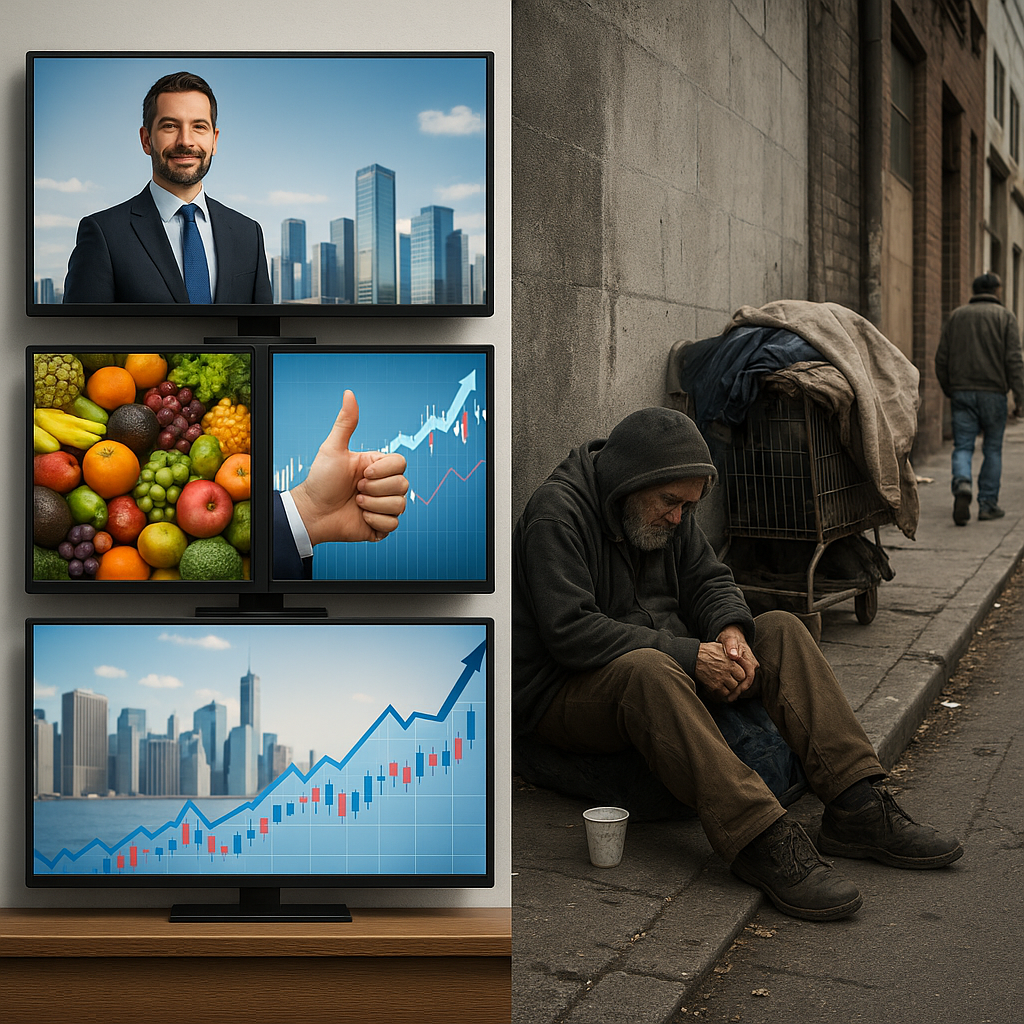
Campaign design team
The World We See vs. The World We're Told
By Vincent Cordova · Candidate for U.S. President 2028
Every day, we walk through two worlds at once. There is the world we see with our own eyes, and there is the world that is projected onto us through television, social media, and government messaging. Too often, these two worlds do not align. In the world I see, people are struggling. I see families living on the edge, working long hours and still unable to make ends meet. I see mass homelessness spreading across cities, not as isolated cases but as a systemic failure. I see wages that no longer cover the cost of living, products and homes built cheaply to maximize profit, and vehicles that once stood for pride and quality now reduced to disposable machines. I see food designed not for health, but for corporate profit. And most of all, I see people exhausted—overworked, tired, and losing faith in a system that seems to value them only as consumers.
But then there is the world we’re told to see. In that version, the economy is “strong,” progress is being made, and setbacks are just “temporary challenges.” Politicians and corporate leaders paint a picture of abundance, of innovation, of stability. Advertisements promise freedom through consumption, as if buying one more product will somehow fill the emptiness created by systems designed to drain us. News cycles highlight stock market highs, GDP growth, or political achievements, but rarely pause to reflect on whether ordinary people feel safer, healthier, or more fulfilled. This projected world is polished, managed, and carefully curated. It does not reflect the truth of daily life—it reflects the priorities of those who profit from maintaining illusions.
This divide between reality and narrative is not an accident. It is manufactured. Media conglomerates, corporate boards, and political strategists know that perception shapes behavior. If people are convinced that things are “not so bad” or that their struggles are personal failures instead of structural problems, then they are less likely to rise up, organize, or demand accountability. When housing shortages are reframed as temporary supply issues, when unaffordable healthcare is normalized, when dangerous or unhealthy foods are advertised as safe, the effect is the same: people are kept in a state of managed struggle. This is not a conspiracy in the shadows; it is the open logic of consumerism and corporate capture, where every problem is redefined as an opportunity to sell something.
And yet, despite this manipulation, our own eyes remain the strongest safeguard. The truth is that no headline or talking point can fully erase what we see and feel. When wages do not cover rent, when shelves are filled with food that harms more than it heals, when loved ones collapse from exhaustion, no statistic can erase that reality. And when millions of people share those same observations—when friends, neighbors, and strangers echo the same struggles—it becomes clear that this is not an isolated perception. It is a collective truth. The manipulation lies not in inventing problems, but in convincing us to believe they are inevitable, that nothing can be done, and that history cannot change.
What gives me hope is that people are beginning to see through the cracks. More voices are rising, more truths are being shared, and more connections are being made between what we are told and what we actually experience. The fear that we are being manipulated is real, but it can also be transformed into power. By grounding ourselves in lived reality and listening to the experiences of others, we become harder to deceive. By refusing to accept scarcity as normal, we remind ourselves that abundance is possible. By exposing the gap between the polished world we’re shown and the real world we live in, we strip away the illusion and make space for something new.
The world we see and the world we’re told may feel like two separate realities, but they are colliding. And when enough people choose to trust what they see, rather than what they are told, that collision becomes transformation. We do not need governments or corporations to manufacture hope for us; we only need to recognize the truth that is already before our eyes. A new beginning does not come from propaganda or promises—it comes from people who decide that they will no longer be managed, contained, or reduced to consumers. It comes from people who demand that life be built around health, dignity, and freedom, not around profit. The world we see is hard, yes. But it is also the soil where truth grows. And from that truth, change becomes not only possible—it becomes inevitable.